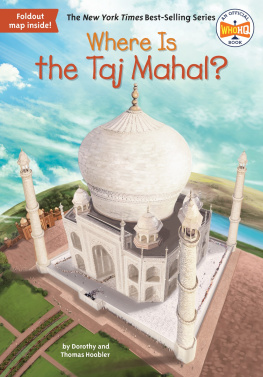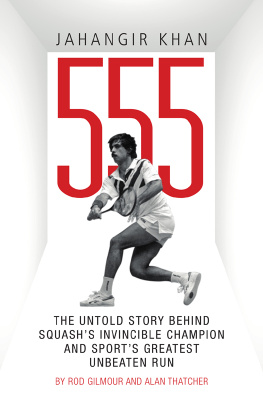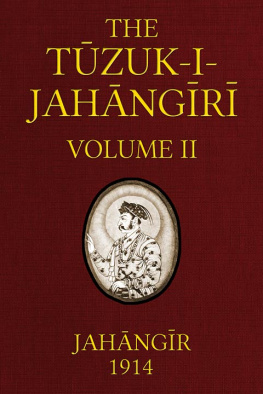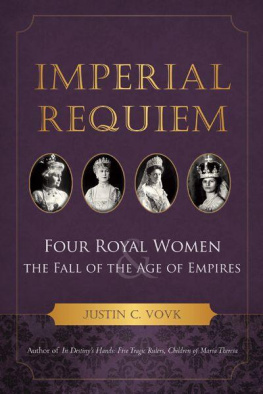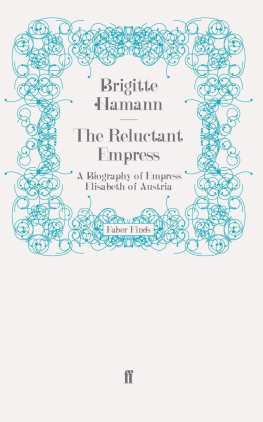Thank you for downloading this Atria Books eBook.
Join our mailing list and get updates on new releases, deals, bonus content and other great books from Atria Books and Simon & Schuster.
C LICK H ERE T O S IGN U P
or visit us online to sign up at
eBookNews.SimonandSchuster.com
For my husband Uday,
For, quite simply, everything.
The mask is offthe charm is wrought
And Selim to his heart has caught,
His Nourmahal, his Harams Light!
And well do vanishd frowns enhance
The charm of every brightend glance;
And dearer seems each dawning smile
For having lost its light awhile:
And, happier now, for all her sighs,
As on his arm her head reposes,
She whispers him, with laughing eyes,
Remember, love, the Feast of Roses.
THOMAS MOORE , Lalla Rookh
ACKNOWLEDGMENTS
Thanks go, again and always, to the members of my critique groups, and especially to those who so kindly put aside their own work and speed-read through the manuscript: Louise Christensen Zak, Laura Hartman, Joyce OKeefe, Julie Jindal, and Janet Lee Carey.
I believe everyone should have a literary agent in his or her life, and quite preferably someone like mine, Sandra Dijkstra. She is a joy to work with, and very engaged in all aspects of my writing, from early reading of drafts to marketing and championing the book through all of its stages. I am also grateful for the effort Sandys entire agency puts into my work.
The Feast of Roses is thrice blessed at Atria Books. My publisher, Judith Curr, continues to be enormously supportive and friendly, and still willing to put her faith in me. Then there are my two editors: Rosemary Ahern, who worked through the early drafts of the novel and whose vision shaped the final story; and Malaika Adero, who willingly adopted this child of mine and lavishes her care upon it. I am deeply thankful to all three of them.
A disclaimer: I do not play chess. If the chess scene in The Feast of Roses is authentic at all, it is due to these people: Santosh Zachariah, who found the game for me, given strict restrictions on number of moves and ease of comprehension; David Hendricks of the Microsoft Chess Club, who, one afternoon, laid out a chess board on a table in the cafeteria and painstakingly took me through the moves and explained the motivations of the players; and my brilliant nephews Gautam and Karthik, who whisked through the game and had to be begged to slow down to a pace more understandable by their doddering old aunt. If, despite all their efforts, there are still mistakes in the game, I readily claim them as mine.
I could not do without the three women who constantly give me love and strength and form my family: Amma, Anu, and Jaya.
And finally, I must acknowledge the libraries of the King County Library System and the University of Washington Suzzallo and Allen Libraries for their treasure trove of literature on Mughal Indialetters, documents, memoirs, books, and maps, which have allowed me to travel through time and distance without leaving home.
PRINCIPAL CHARACTERS
(In Alphabetical Order)
Abdur Rahim | The Khan-i-khanan, Commander-in-chief of the imperial army |
Abul Hasan | Mehrunnisas brother |
Arjumand Banu | Mehrunnisas niece and Abul's daughter, later Empress Mumtaz Mahal |
Akbar | Third Emperor of Mughal India |
Ali Quli Khan Istajlu | Mehrunnisas first husband |
Ghias Beg | Mehrunnisas father |
Hoshiyar Khan | Chief eunuch of Jahangirs harem |
Jagat Gosini | Jahangirs second wife |
Jahangir | Akbars son and fourth emperor of Mughal India |
Khurram | Jahangirs third son, born of Jagat Gosini |
Khusrau | Jahangirs first son, born of Man Bai |
Ladli | Mehrunnisas daughter by Ali Quli |
Mahabat Khan | Jahangirs childhood cohort and minister |
Mehrunnisa | Ghiass daughter, later titled Nur Jahan |
Muhammad Sharif | Jahangirs childhood cohort, now Grand Vizier of the Empire |
Nur Jahan | Mehrunnisas title upon become Empress |
Parviz | Jahangirs second son |
Ruqayya Sultan Begam | Akbars chief queen, or Padshah Begam, now a Dowager Empress |
Shabryar | Jahangirs fourth son |
Thomas Roe | First official ambassador from England and the court of James I |
CHAPTER ONE
Nature had endowed her with a quick understanding, a piercing intellect, a versatile temper, sound common sense. Education had developed the gifts of nature in no common degree. She was versed in Persian literature and composed verses, limpid and flowing, which assisted her in capturing the heart of her husband.
BENI PRASAD,
History of Jahangir
T he months of June and July passed. The monsoons were tardy this yearthe nights hinted rain constantly with an aroma in the air, a cooling on the skin, soundless lightning across skies. But when morning came, the sun rose strong again, mocking Agra and its inhabitants. And the days crawled by, brazenly hot, when every breath was an effort, every movement a struggle, every night sweat-stewed. In temples, incantations were offered, the muezzins called the faithful to prayers, their voices melodious and pleading, and the bells of the Jesuit churches chimed. But the Gods seemed indifferent. The rice paddies lay plowed after the pre-monsoon rains, awaiting the seedlings; too long a wait and the ground would grow hard again.
A few people moved torpidly in the streets of Agra; only the direst of emergencies had called them from their cool, stone-flagged homes. Even the normally frantic pariah dogs lay panting on doorsteps, too exhausted to yelp when passing urchins pelted them with stones.
The bazaars were barren too, shopfronts pulled down, shopkeepers too tired to haggle with buyers. Custom could wait for cooler times. The whole city seemed to have slowed to a halt.
The imperial palaces and courtyards were hushed in the night, the corridors empty of footsteps. Slaves and eunuchs plied iridescent peacock feather fans, wiping their perspiring faces with one hand. The ladies of the harem slept under the intermittent breeze of the fans, goblets of cold sherbets flavored with khus and ginger resting by their sides. Every now and then, a slave would refresh the goblet, bringing in another one filled with new shards of ice. When her mistress awoke, and wake she would many times during the night, her drink would be ready. The ice, carved in huge chunks from the Himalayan Mountains, covered with gunnysacks and brought down to the plains in bullock carts, was a blessing for everyone, nobles and commoners alike. But in this heat, ice melted all too soon, disappearing into a puddle of warm water under sawdust and jute.


